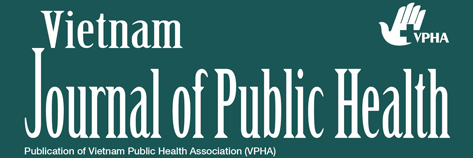Knowledge related to climate change and willingness to act for adaptation and mitigation practices in rural Nepal
Abstract
This descriptive analysis sought to test Leiserowitz 2007 findings. Leiserowitz 2007 findings claimed that until people gained a general understanding of climate change or it was commonly discussed as a part of everyday discourse, people would perceive lesser risk and would be less willing to follow mitigation and adaptation measures. A cross-sectional study using a semi- structured questionnaire was conducted among 206 randomly selected respondents in ward number one, eight, and nine of Sardikhola village development committee of Kaski district between September and December 2012. The level of knowledge ranged between a high of 41% and a low of 12% with 47% possessing moderate knowledge of climate change. On the basis of this range of knowledge of climate change, 38% of respondents indicated they were more willing to adopt mitigation and adaptation actions. This study found that people of Sardikhola who were aware of the term 'climate change' have moderate knowledge about climate change, responded that they were "less willing" to adopt mitigation actions.
Keywords
Full Text:
Download PDFReferences
Intergovernmental Panel on Climate Change (IPCC). Climate Change 2001: The Scientific Basis. Contribution of Working Group I to the Third Assessment Report of the Intergovernmental Panel on Climate Change. In: Houghton JT, Y. Ding, D.J. Griggs, et al., eds. Cambridge, United Kingdom and New York, NY, USA: Cambridge University Press; 2001:881.
Intergovernmental Panel on Climate Change (IPCC). Climate Change 2001: Impacts, Adaptation and Vulnerability. Contribution of Working Group II to the Third Assessment Report of the Intergovernmental Panel on Climate Change In: McCarthy JJ, Canziani OF, Leary NA, Dokken DJ, White KS, eds. USA: Cambridge University Press; 2001:1032.
Confalonieri U, B. Menne, R. Akhtar, et al. Human health. Climate Change 2007: Impacts, Adaptation and Vulnerability. Contribution of Working Group II to the Fourth Assessment Report of the Intergovernmental Panel on Climate Change. In: M.L. Parry, O.F. Canziani, J.P. Palutikof, P.J. van der Linden, C.E. Hanson, eds. Cambridg, UK: Cambridge University Press; 2007:391-431.
Asian Development Bank (ADB). Accounting for health impacts of climate change. Asian Development Bank;2011.
Ghimire P. Pilot Program for Climate Resilience in Nepal. Environment Division: Ministry of Environment, Nepal.
World Health Organization (WHO). Protecting Human Health from Climate Change: Report of the Technical Discussions. New Delhi: Regional Office for South-East Asia; August 2009.
Ministry of Home Affairs. Disaster Preparedness Network. Kathmandu 2010.
Ministry of Enviroment. National Adaptation Programme of Action to Climate Change. Kathmandu, Nepal 2010.
Tiwari KR, Awasthi KD, Balla MK, Sitaula BK. Local people’s perception on Climate Change, its impact and adaptation practices in Himalaya to Terai regions of Nepal. 2010; http://www.forestrynepal.org/publications/article/4837. Accessed 14 August, 2013.
Chaudhary P, Bawa KS. Local perceptions of climate change validated by scientific evidence in the Himalayas. Biol Lett. 2011;7(5):767-770.
World Bank. Nepal Country Environmental Analysis- Strengthening Institutions and Management Systems for Enhanced Environmental Governance. Environment and Water Resources Management Unit, South Asia Region: Sustainable Development Department;2007.
Banstola A, Chhetri MR, Schneider RM, Stebbing M, Banstola A. Climate change as a human-health threat, a survey of public perceptions in rural Nepal. Unpublished. 2013.
Leiserowitz A. Public Perception, Opinion and Understanding of Climate Change – Current Patterns, Trends and Limitations. Human Development Report Office: UNDP;2007.
Climate Leadership Initiative and the National Center for Conservation Science & Policy. Preparing for Climate Change in the Klamath Basin. 2010; http://climlead.uoregon.edu/publications/climate-preparedness. Accessed 15 August, 2013.
Haque MA, Yamamoto SS, Malik AA, Sauerborn R. Households' perception of climate change and human health risks: a community perspective. Environ Health. 2012;11:1.
Interagency Working Group on Climate Change and Health (IWGCCH). A Human Health Perspective on Climate Change. A report outlining the research needs on the human health effects of climate change 2009; www.niehs.nih.gov/climatereport. Accessed 15 August, 2013.
Piya L, Maharjan KL, Joshi NP. Perceptions and Realities of Climate Change among the Chepang Communities in Rural Mid-Hills of Nepal. Journal of Contemporary India Studies. 2012;2:35-50.
DeBono R, Vincenti K, Calleja N. Risk communication: climate change as a human-health threat, a survey of public perceptions in Malta. Eur J Public Health. 2012;22(1):144-149.
Ministry of Health. Climate Change and Health - Research Report. Canada2008.
Bloom BS. Learning for mastery. Evaluation Comment. 1968;1:1-12.
Ministry of Health and Population (MOHP) [Nepal], New ERA, ICF International Inc. Nepal Demographic and Health Survey 2011. Kathmandu, Nepal: Ministry of Health and Population, New ERA, and ICF International, Calverton, Maryland;2012.
Stott R. Population and climate change: moving toward gender equality is the key. J Public Health. 2010;32(2):159-160.
Preet R, Nilsson M, Schumann B, Evengård B. The gender perspective in climate change and global health. Glob Health Action. 2010;3



